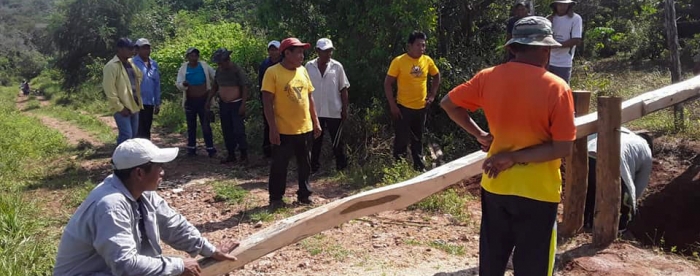News
Our stories ... ...

General - 02 June, 2020
The COVID-19 crisis can affect communities in tropical forested landscapes in different ways. When measures to prevent the spread of the disease are restricting the movement of freight and people, farmers may no longer be able to buy and sell products at the market. It has also been suggested that the crisis can increase illegal extraction of natural resources, for example when companies try to take advantage of reduced monitoring and law enforcement.
To understand the various ways in which the crisis may affect people’s lives and land-use in the landscapes where the Tropenbos International (TBI) Network is active, we decided to ask community-members directly. Interviews were done by phone, video conferencing software, or face to face (in cases where TBI staff lives in the community). They show that, in times of crisis, people tend to rely on the food they produce themselves. The pandemic poses a threat to food security for those who are specialized in non-food commodity production, often for far-away markets, such as labourers in the oil palm plantations of West Kalimantan, and indigenous communities that are specialized in timber extraction in Guarayos, Bolivia.
The effect of the crisis on illegal resource extraction differs between the various landscapes. Communities in Bolivian indigenous territories have constructed roadblocks and checkpoints to restrict movement of people and goods in and out of the area. Although this is intended to prevent the spread of COVID-19, it also allows them to effectively prevent illegal activities. It is different in Ketapang, West Kalimantan. There, several interviewees mentioned that illegal logging and mining have increased, ever since COVID-19 measures were installed. This is not necessarily the work of opportunistic companies, as has been reported in other parts of the world. Instead, interviewees suggest that it is primary the result of people looking for alternative sources of cash income, after losing their employment as labourers on oil palm plantations.
Below you can find short videos of several of the interviews that were conducted in Indonesia, Bolivia Vietnam, Uganda and Suriname. Together they present a cross-section of the variety of community-level experiences with measures to prevent the spread of COVID-19.
West Kalimantan, Indonesia: People cannot find employment outside of the village, so they turn to illegal logging and mining
Guarayos indigenous territory, Bolivia: The wood mills have closed—the whole community now focusses on cultivating food crops
West Kalimantan, Indonesia: People are afraid to buy chickens
Ngogwe, Uganda: Stuck at home, with a big family to feed
West Kalimantan, Indonesia: Phone bills increase, because children need to use their mobile phones for home-schooling
Dak Lak, Vietnam: Traders no longer come to the village to buy our products
Bigi Poki, Suriname: The real problem is that the state bus is no longer running